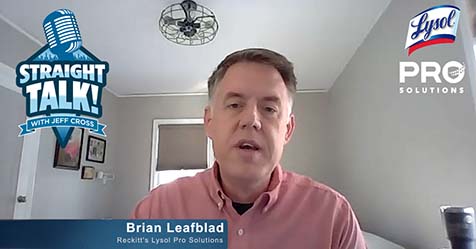Once upon a time, there was nothing but bulk. Whether we were talking about public toilets or office restrooms, schools or hospitals, soap dispensers holding their products in a refillable reservoir were the only alternative to a bar of soap or lotion from a bottle.
This was for good reason: Bulk dispensers left far less mess than bar soaps and were inexpensive. However, budget-driven decisions in favor of bulk systems did not always take one issue into consideration that we now recognize as extremely problematic—bacterial contamination.
Contamination in Bulk Dispensers
Bulk systems are not sealed, leaving the exposed soap vulnerable to contamination from the environment or from the hands of the person refilling and handling the dispenser system. The widely applied practice of “topping-off” dispensers—refilling them before they are completely empty and have been cleaned properly—means the old soap in the reservoir may already be exposed to germs, resulting in contamination of new soap. Even if your staff frequently cleans the equipment with aggressive products there is still a high risk of recontamination due to microorganisms that stick to each other and adhere to surfaces, according to a 2012 study analysis, “Evaluation and Remediation of Bulk Soap Dispensers for Biofilm.
A Safe Alternative
Sealed dispenser systems offer a safe alternative to bulk dispensers. Here’s why:
- They mitigate contamination. Sealed dispensers eliminate contact between the product and the environment, creating a closed system, and can be refilled by inserting a sealed cartridge of soap into the dispenser. This method reduces risk of contamination.
- They can help with efficiencies. In contrast to the often messy refilling procedure of bulk dispensers, sealed cartridges are quick and easy to change. Spills are no longer an issue, and sealed cartridge dispensers require minimal cleaning. Maintenance is also extremely low, saving time, and in turn, money.
- They can prevent product waste. Some cartridge dispensers are designed to deliver exactly the right amount of a specific product at any given time—whereas bulk dispensers tend to deliver the same quantity no matter the product they are filled with.
Increase Compliance
An easy-to-use, sealed cartridge dispenser system can make a significant contribution to increasing hand hygiene compliance. Restroom users are much more likely to wash their hands with soap if the product is available from a pleasant-looking, clean, and tidy dispensing system.
Additionally, sealed cartridge dispensers are safer and more hygienic than their bulk counterparts; they minimize the risk of bacterial contamination and help to prevent infections; they save companies time and money; and they ease the burden on the environment. If you consider all of these advantages together, it really is better to be sealed than sorry.




